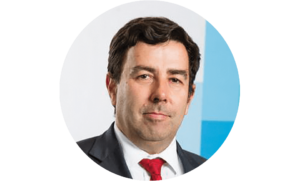Pedro Wilton, Senior Account Manager, Euronext Lisbon
There is nothing like new circumstances to prove the ability of human beings and companies to overcome adversity. And nothing like the capital market to show how to turn challenges into opportunities.
First, with RESILIENCE.
In March 2020, the Stock Exchanges entered a short period of strong volatility and very strong liquidity. The reaction of all the actors involved, namely governments, helped containing fears and seeking a gradual return to normality.
There was much talk, one year ago, about the closing of markets to contain the pandemic. However, the facts were there and proved, as the situation unfolded, that this extreme option was unnecessary: Stock Exchanges have security mechanisms to face periods of turbulence that enable them to cross the proverbial cape of storms.
And although some listed companies still face some challenges as to their future, and the performance of the various sectors is uneven under the current scenario, most listed companies have been able to adapt and survive. In fact, many have been able to secure funding when the stock exchanges stabilized, during the year 2020 still, either through capital increases or through debt refinancing, with emphasis on the strong growth of sustainable debt.
Second, with INNOVATION.
Closing of borders and social distance, in general, did not inhibit companies from looking at the capital market as a strategic option. And whereas before Initial Public Offerings (IPOs) included roadshows and management teams and advisors traveled the world to visit investors, in 2020 these roadshows took place via video call. Conviviality was lost but there were diversity gains: instead of half a dozen cities and investors, it became customary to address dozens of investors in all time zones. The ability to organize and adapt proved crucial once again. A striking example of this trend was the listing of Pexip in April 2020 – oddly enough a videoconferencing provider, specially prepared for this evolution – which organized an exclusively virtual highly successful IPO.
Still as regards innovation, it is worth mentioning the ability of companies to adapt to reality as regards the time it takes to perform tasks: whereas before an operation would take weeks, it is now possible and crucial to perform tasks in a few days, thus minimizing risks and seizing opportunities. See for example the IPO of JDE Peet, a Dutch coffee and tea distribution company, which completed its IPO in just 3 days – instead of the usual 2 to 3 weeks.
Third, with AMBITION.
Ambition has not died down and is pretty much alive in the mind and hearts of the business people. Today the world is more distant (given the social and geographic distance) but is also closer (at the distance of a click and a screen), enabling quick and simple access to new markets and opportunities, thus nurturing the wish to both grow and take leadership.
In the capital markets, this ambition was clearly there in the number and diversity of companies that followed the path of stock market listing. There are numerous examples out there and the testimonies of the CEOs often match the message: we want to grow, we want to succeed independently, and we want to stand out from the rest. And, many would say, Stock Exchanges are there to support the ambition of our shareholders and of our employees.
In January 2021, Euronext launched the 6th edition of TechShare, a program targeting technological companies that consider the capital market a strategic growth option. The 10 companies in this edition – the highest number in Portugal since the beginning of the program – are an excellent and diverse example of what I mentioned: stories of resilience, innovation and ambition in the quest for support and opportunity. I am sure that Cunha Vaz e Associados, Euronext’s partner in this program, will be an invaluable partner when the time comes for these companies to think about their future. And I hope to see them soon ringing the symbolic bell of the Lisbon Stock Exchange!







